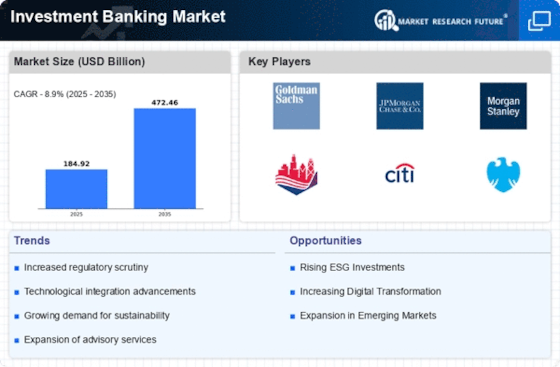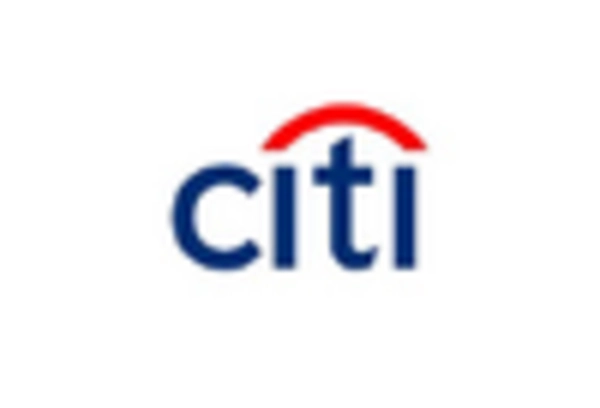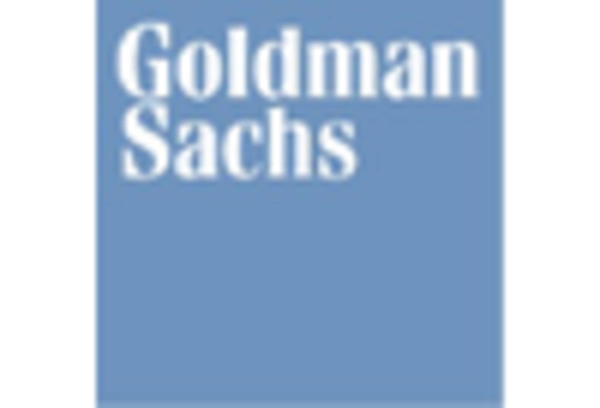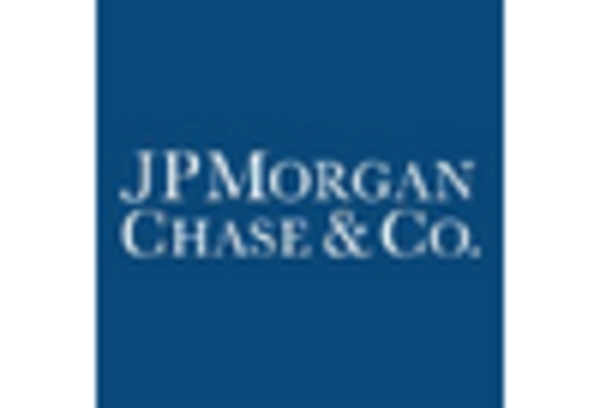Market Analysis
In-depth Analysis of Investment Banking Market Industry Landscape
The global financial landscape drives Investment Banking industry growth. Financial factors including GDP growth, loan fees, and expansion affect investment banking interest. Investment banking services help corporations and legislatures generate funds for expansion, consolidate and acquire, and access financial markets during economic growth. During financial crises or market volatility, companies and legislatures may become more cautious about their financial activities, reducing investment banking interest. Thus, the global economy and financial markets shape investment banking growth and interest.
Administrative and overall developments influence Investment Banking. States and administrative bodies improve financial market transparency, reliability, and decency via guidance. Administrative developments like the US Dodd-Straight to the Point Act or the global Basel III system impose tougher capital, risk, and consistency requirements on investment banks. These developments affect investment banks' working conditions and administrations' interest. Investment banks should adapt to administrative changes and give help that meets new consistency requirements to grow and be productive.
Fintech, automated reasoning, blockchain, and data analysis have disrupted investment banking and opened new avenues. Investment banks are using technology to improve business procedures, automate activities, increase risk, and offer creative financial solutions. Mechanical advances allow investment banks to expand their customer base, improve efficiency, and introduce new products and services. Innovation in investment banking has driven corporate growth and transformation.
Globalization and cross-line trades also shaped the Investment Banking sector. Global consolidations and acquisitions, cross-line investments, and new direct investments have increased due to globalization and the need for cross-line finance. Investment funds with global presence and global exchange expertise are well-positioned to capitalize from globalization. Investment banks' success and growth depend on their ability to provide warning help, finance, and market access for cross-border exchanges.
The growing funding landscape has also affected Investment Banking. Institutional investors like benefits reserves, sovereign abundant assets, and private value enterprises are becoming important in global financial markets. Investment banks that can satisfy institutional investors and offer redid arrangements have a competitive edge. Due to their lengthy investment processes, market impact, and capital requirements, institutional investors are increasingly interested in investment banking services.



















Leave a Comment